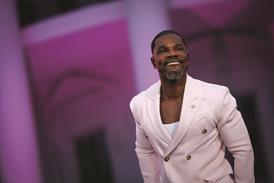If you want to pass on faith, it needs to be actions, not just words, says Chine McDonald

It’s not often that I pay attention to what Richard Dawkins says. But there is no doubt that my Christian formation took place against a backdrop of prominent New Atheists such as the evolutionary biologist himself and was, whether I like it or not, influenced by it. The early 2000s featured voices such as Dawkins who presented Christianity, and religious belief in general, as anti-intellectual and backwards, but also harmful.
Dawkins also once said that children needed to be protected from “religious indoctrination” and that teaching children Christian beliefs about life after death was “tantamount to child abuse”. So it is with all this baggage that I have approached my own parenting with trepidation. My boys are still young – just six and two – but as a millennial, I feel the pressure of not wanting to “indoctrinate” them but also wanting them to be introduced to the life-transforming person of Jesus Christ. I want them to read and love the Bible, but not see doing so as something you have to, like brushing your teeth.
Beliefs can’t just hang in the air; they need to be lived out
Somewhere in the back of my mind, I hope that my laissez-faire attitude to childhood Christian discipleship will attract them and sustain them in their faith into adulthood. Unfortunately, I fear I’m wrong on that one.
In the so-called ‘age of atheism’, new research published by researchers at Queen’s University Belfast, revealed that the pressure is on for Christian parents wanting to pass on their faith to their children. The study, entitled Explaining Atheism, found that atheism or theism had less to do with intelligence, fear of death or need for meaning, and was instead strongly correlated to being socialised in an environment where faith was present. It’s about the household you grow up in and what beliefs are in the air there. But the beliefs can’t just hang in the air, though; they need to be lived out tangibly, with practices that demonstrate our faith and what it means to us.
Dr Lois Lee, one of the authors of Explaining Atheism, told The Times: “It’s not talking the talk that matters, it’s walking the walk…We need to see our parents living by their beliefs much more than we need to hear them stating their beliefs in order for them to influence us.”
The survey results have reminded me that raising children in the faith should not be about indoctrinating them, nor simply speaking often about being a Christian. My children need to see the difference that my faith makes to my life; the way it shapes what I do and how I do it. How it impacts everything from how I treat people to how I vote. I can’t just expect them to make the connections themselves in this; I need to be explicit about all of it, to draw them into the conversation, even at an early age.
It’s only then that they can be convinced of the power of the gospel, both to save and to transform all areas of our lives.







































No comments yet